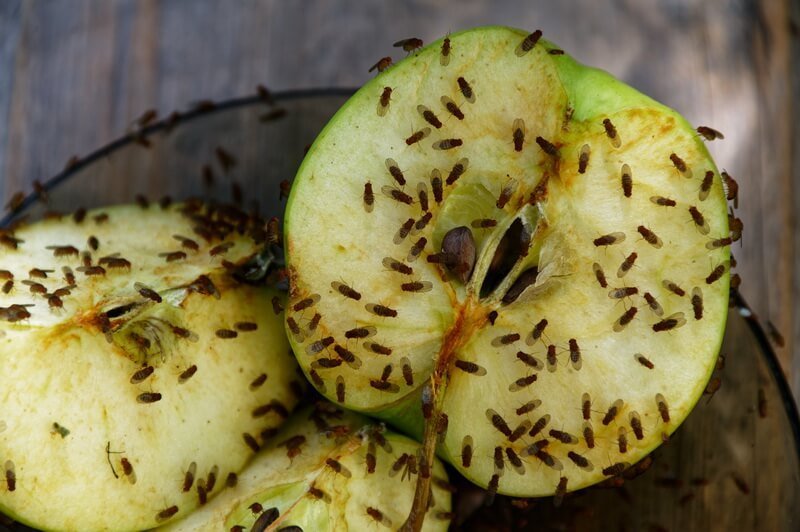Yes, bug zappers work well on fruit flies, and it is an effective way of eliminating them.
April 15, 2025
6 min read time
This information is reviewed by an independent pest control expert.
All external links are non-affiliated and for informational purposes only

When summer rolls around, so does the buzzing of pesky flies, especially those tiny, annoying fruit flies that seem to appear out of nowhere. You might have heard about bug zappers as a solution to your insect woes, but do they really work on fruit flies? If you’re wondering whether you should invest in one of these electric devices or stick to more traditional methods, you’re in the right place! In this article, we’ll dive deep into the world of bug zappers and fruit flies, exploring everything from how they work to their effectiveness.
Table of Contents
Before we get into the nitty-gritty of bug zappers, let’s take a moment to understand our tiny adversaries: fruit flies. Scientifically known as Drosophila melanogaster, these little insects are commonly found in homes, especially where ripe or decaying fruits are present. Here are some key characteristics of fruit flies:
Fruit flies are attracted to fermenting fruits and vegetables, making them a common sight in kitchens. Understanding their habits is crucial for effective pest management.
Bug zappers, also known as electric insect killers, are designed to attract and kill flying insects. Here’s how they typically operate:
Bug zappers come in various forms, each with its unique features. Here are the most common types:
Learn all about flies
Deep dive this topic with hand-picked articles just for you
Now, let’s get to the crux of the matter: Do bug zappers actually work on fruit flies? The short answer is: not really. While bug zappers are effective against many larger insects like mosquitoes, they fall short when it comes to fruit flies. Here’s why:
Research backs up the claim that bug zappers are not effective against fruit flies. A study published in the Journal of Medical Entomology revealed that while bug zappers can significantly reduce populations of larger flying insects, they have little to no impact on smaller pests like fruit flies. In fact, the majority of insects zapped tend to be beneficial ones, which can harm the local ecosystem.
Since bug zappers are not the answer, let’s explore some effective alternative methods to control fruit flies:
Creating traps at home can be a simple and effective way to catch fruit flies. Here are a few DIY traps you can try:
The best way to deal with fruit flies is to prevent them from entering your home in the first place. Here’s how:
If you find yourself with a significant fruit fly infestation that you can’t manage on your own, it might be time to call in the professionals. Pest control experts can provide targeted solutions that are safe and effective.
In the battle against fruit flies, bug zappers are not your best weapon. While they may zap away larger pests, their effectiveness against fruit flies is minimal due to the insects’ small size and attraction to fermenting food rather than UV light. Instead, employing traps, maintaining cleanliness, and sealing off entry points are your best strategies for keeping these pesky flies at bay.
By understanding your enemy and using the right tactics, you can reclaim your kitchen and enjoy a fruit-fly-free summer! So next time you think about getting a bug zapper, remember: there are better, more effective ways to deal with those tiny invaders. Happy fly-fighting!
Latest Comments Click to leave a comment